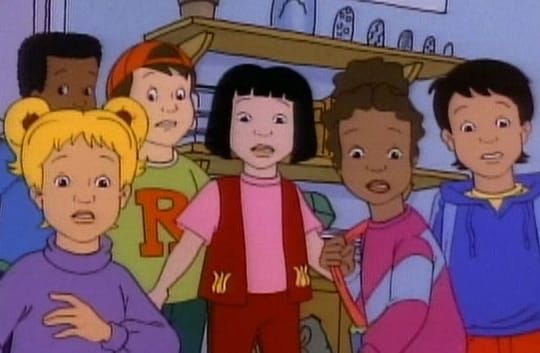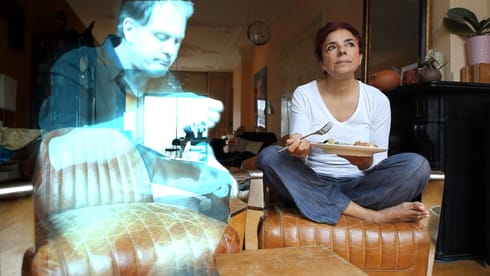
Decline of Educational Entertainment in Children’s Shows
By Kara Ngo
Picture yourself as a child, sitting cross-legged in front of the television. The Magic School Bus is playing on the screen, and you excitedly take in its vibrant animations and educational adventures. Though as you grow older, you notice your beloved shows are becoming rarer on television, and the younger generation seems unaware of programs like The Magic School Bus entirely.
In recent years, the children’s media industry experienced many significant changes, with a noticeable decline in both the production and popularity of educational children’s shows. This shift has raised concerns among educators, parents, and researchers about the potential negative impact on children’s learning and development.
Children’s shows are one of the most engaging pathways for a child’s early education, utilizing a blend of learning and entertainment to do so. Programs like PBS Kids have been one of the most popular examples, producing shows like Molly of Denali. This series taught children how to use informational text, building a foundational skill for academic success from childhood to adulthood.
The decline in educational children’s shows is paralleled by a decrease in recreational reading. A study by the Pew Research Center found that the number of 9 and 13-year-olds in the U.S. who read for fun on a daily basis has dropped to some of the lowest levels since the mid-1980s. This trend suggests that children are becoming increasingly disinterested in activities that promote learning and cognitive development, only heightening the regrettable decrease in educational media.
One of the major factors contributing to the decline of traditional educational shows is the rise of short-form video media, such as TikTok. These social media platforms have gained immense popularity, but they also pose challenges for children’s attention spans. The phenomenon known as “TikTok Brain” describes the decreased attention spans resulting from the constant consumption of short, rapidly changing videos. This shift in the usual media consumption makes it difficult for children to engage in activities that require continual focus and effort, such as learning and developing knowledge.
Despite the decline in traditional educational shows, there is evidence that such engaging media can significantly benefit children in learning STEM. Informal STEM education through television series, websites, and interactive games has a long history of popularity and success. For example, researchers Phillip B. Levine and Melissa Kearney found that a preschooler’s regular viewing of Sesame Street has been shown to help develop early mathematics knowledge and even contribute to long-term academic performance.
Bill Nye the Science Guy and The Magic School Bus, in particular, were some of the most popular educational shows among children in the 2000s. Bill Nye hosted his own television series centered around explaining science to children. He breaks information down to make it easily digestible for young viewers, while keeping his content informative and engaging. Similarly, The Magic School Bus stars an elementary school teacher, Mrs. Frizzle, and her class of students who go on magical field trips that transform the bus into various forms. Each episode often simplifies complex scientific topics that are easy for children to understand, and are condensed into 25-minutes to prevent their audience from getting bored.
“Whatever the situation, you best believe the students from Walkerville Elementary [the school where Mrs. Frizzle and her students are located] will be learning. And your kids will too during this fun, wholesome, educational escapade,” says Kristin Smith, a former English and Spanish teacher.
Growing up watching The Magic School Bus, you’ve come to realize the impact it has had on your life since childhood. Basic science lessons in elementary and middle school became more comprehensible after you saw those very concepts being taught to you on television. Other shows like Bill Nye the Science Guy or Sesame Street also allow children to more easily grasp STEM topics presented through entertainment. This consistent exposure to STEM content not only fosters a better attitude towards school subjects, but also prepares you for future academic endeavors.



